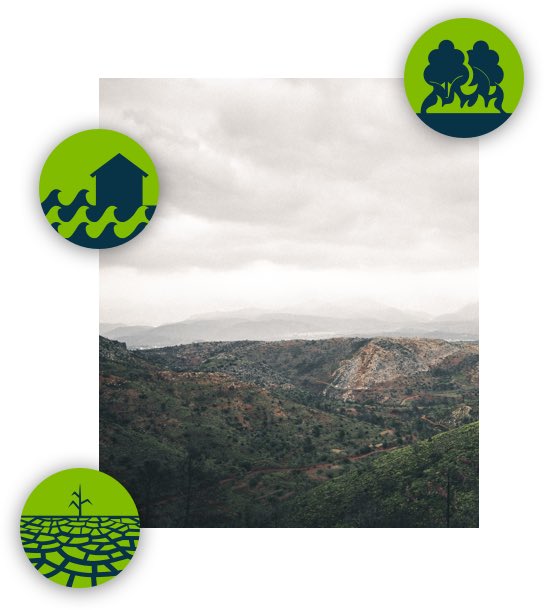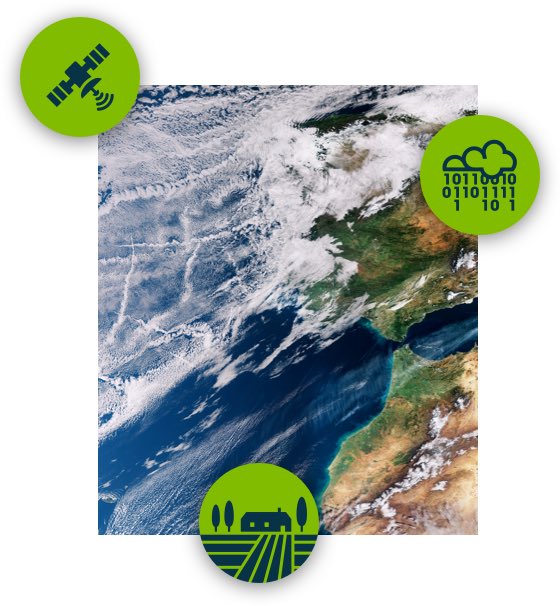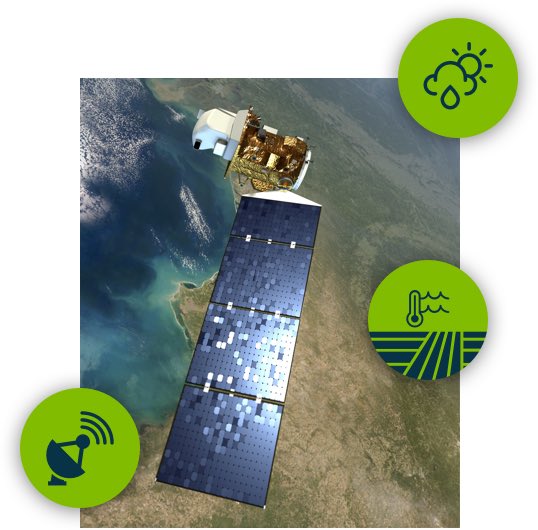
Early Warning Service for Water-related Climate Risks to increase resilience in the Sudoe region.
- APPROACH 4:
- Fight against climate change
- Objective 5B1:
- To improve the coordination and effectiveness of instruments for preventing and managing disasters and reconstructing disaster areas
- Total cost:
- 1.486.000,00 €
- ERDF aid:
- 1.114.500,00 €
- Call-up:
- THREE
- Duration:
- 37 months 01/09/2019 - 31/08/2022
The climate in the Sudoe region (Portugal, Spain and part of France) is suffering from a severe water shortage, which has led to considerable uncertainty about the availability of water resources. In addition, climate change is exacerbating this water shortage and increasing climate variability and extreme events.
climalert proposes setting up a transnational early warning service for water-related climate risks (droughts, fires and floods) in the Sudoe region, the area of Europe hardest hit by phenomena linked to climate change.


This service is based on integrating all this information into a regional spatial data infrastructure, including data that comply with the OpenData and INSPIRE directives and biophysical products originating from images from ESA’s Copernicus programme (Sentinel satellites), numerical prediction models and real-time agro-climatic information from the networks available in the area of cooperation.
climalert is aiming to develop a platform to raise the alarm about the potential effects of extreme weather events (droughts, fires, floods and soil erosion) and to support the decisions of both public and private agents regarding the efficient management of water and soil erosion.
The project is aimed at developing a transnational platform that will bring together data from the Sentinel (radar, optical and near-infrared) and Landsat (optical and thermal) satellites, air and soil climate data, weather forecasting and soil, hydrographic and elevation maps.
This platform will be tested in different locations throughout the area of cooperation, with collaboration in the design and implementation phases involving all of the stakeholders (civil protection, farmers’ associations, environmental management organisations, etc.). It will also help to predict and understand the behaviour of extreme weather events and water management in both rural and urban areas.

Early warning improves coordination and prevention.
Contact with us
Project Coordinator
ACMG- Jean-François Berthoumieu
846 Allée de la Seynes, 47310 Sainte Colombe en Bruilhois
